HOW TO BE A RESPONSIBLE VOLUNTEER
Volunteering is a familiar and appealing activity that many young people are keen to embark on. However, few truly understand the essence of “giving” and what a responsible volunteer project entails. To help students know how to properly and responsibly participate in and carry out community volunteer projects in preparation for the upcoming community initiatives, Luong Van Can Fund in collaboration with “Hieu” Project held a training session, “Responsible Volunteering”, on January 9, 2021.
“Hieu” Project – “When the young give away” – was established in August 2019 by the alumni of the “CHUM – Give & Grow” course. This course aimed to raise the volunteering quality of students in Ho Chi Minh City and neighboring provinces by providing knowledge on responsible volunteering for youngsters aged 16 – 19 via various forms such as workshops, debates, etc.
At the beginning of the program, the students participated in a short activity in which they closed their eyes together and thought about the community project that they had planned to do. Then, each member would share and listen to others’ feedback.
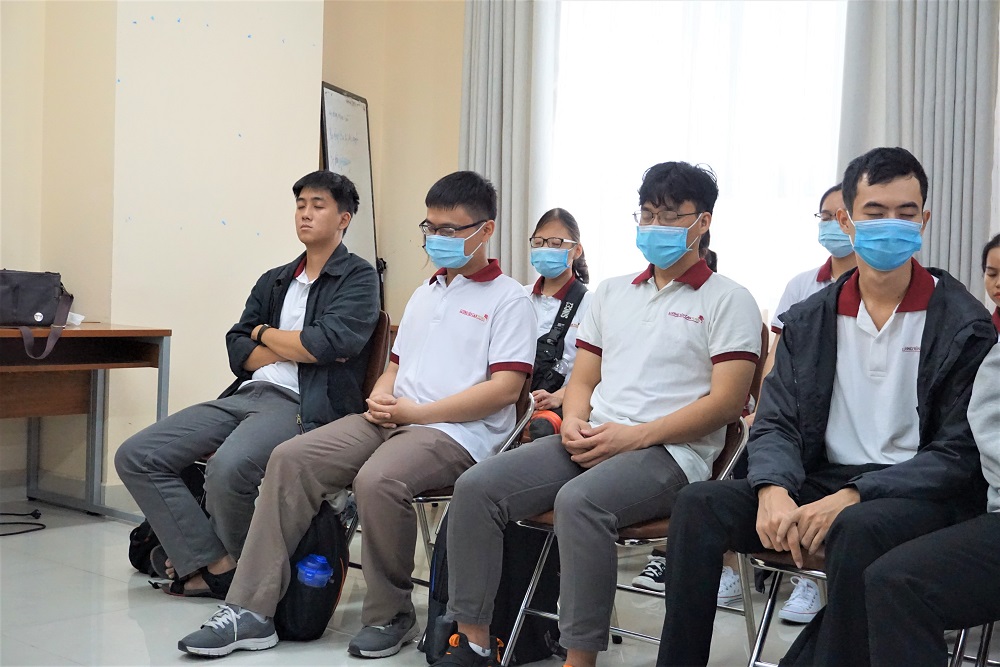
The training focused mainly on facilitating students with basic information about the concept “Responsible Volunteering”, through the devoted sharing of Hieu Project’s members. Three key factors lead to a successful project: know yourself, know the organization, and know the beneficiaries.
First, students got to know the 3T model which stood for a time, asset and talent. This is a base from which people know how and what to give. In addition, the purpose of participation was also mentioned as a crucial factor in project participation.
Secondly, knowing the organization was a significant factor because it enabled us to know whether this organization matched our values. It was widely known that only shared values could motivate us to work together in the long run. Besides, the way the organization solves the problem, whether or not it was inspiring enough to promote participation, should also be considered. The expertise of the organization and ourselves should be taken seriously for the sake of beneficiaries.
Finally, knowing the beneficiaries was introduced as the key factor determining the project’s success. The important thing to do was to identify specific target groups and what they needed. Commonly we were often misled by giving the beneficiaries what we think they need. Therefore, to volunteer responsibly and effectively, give people what they need instead of just giving what you have. In such cases, surveys must be conducted thoroughly based on reliable data.
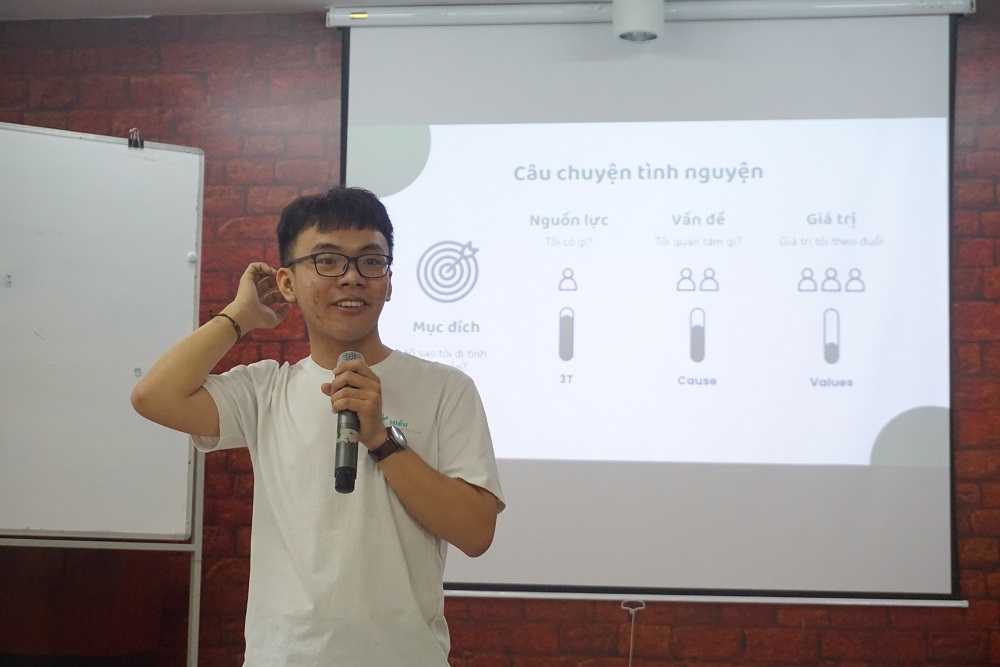
Towards the end of the training session, the atmosphere in the auditorium became increasingly dynamic due to the debate between two teams on the topic, “Are short-term or long-term projects better?”. Via the discussion, all participants realized that there was no proper answer to this case. Each type of volunteering had its own advantages and disadvantages. However, with an aim for a productive project, it was indispensable to take a longer-term view during the planning stage.
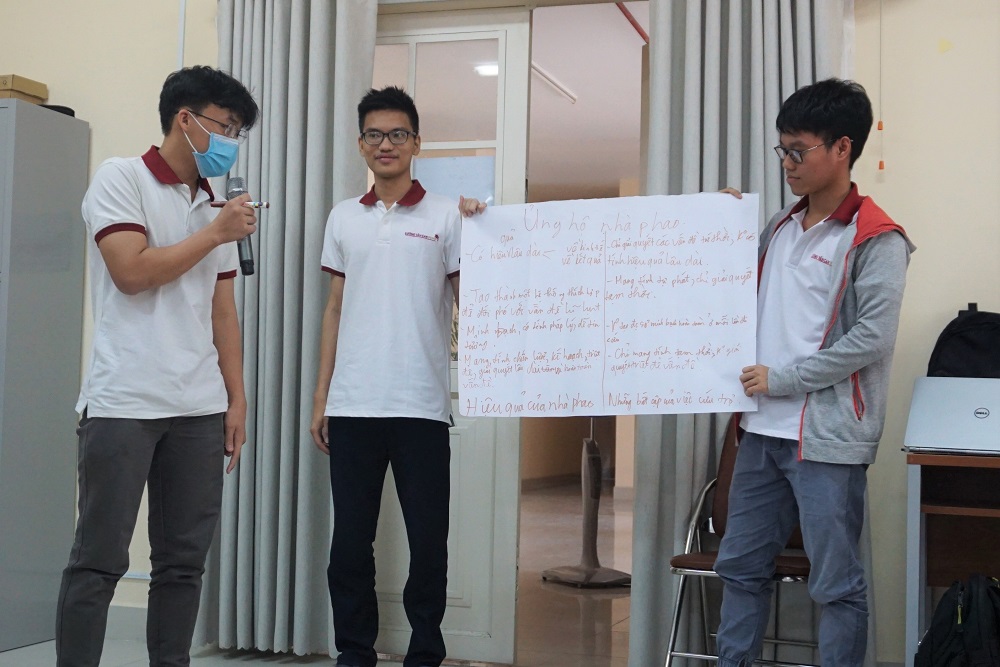
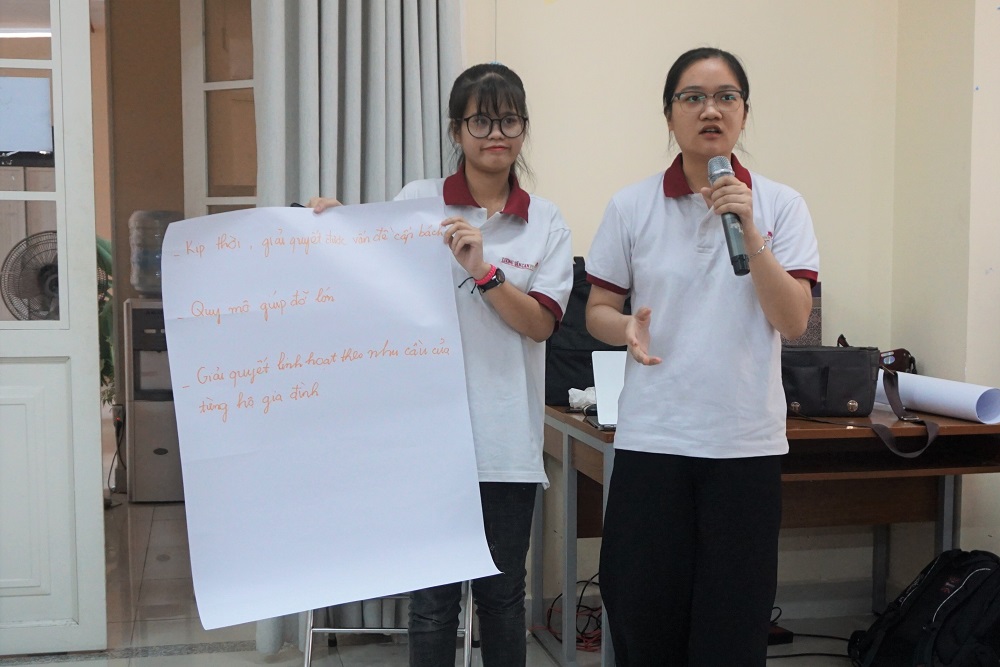
The training was finished off with the advice from “Hieu” project to Luong Van Can scholars – they should reflect on their projects continuously and answer questions such as “Will this volunteer project satisfy me? Is there any other way to make this project better and more responsible?”. This will enable them to promptly recognize the shortcomings for better organization. It was also the way individuals can contribute to the world, not just waiting for the world to change itself.
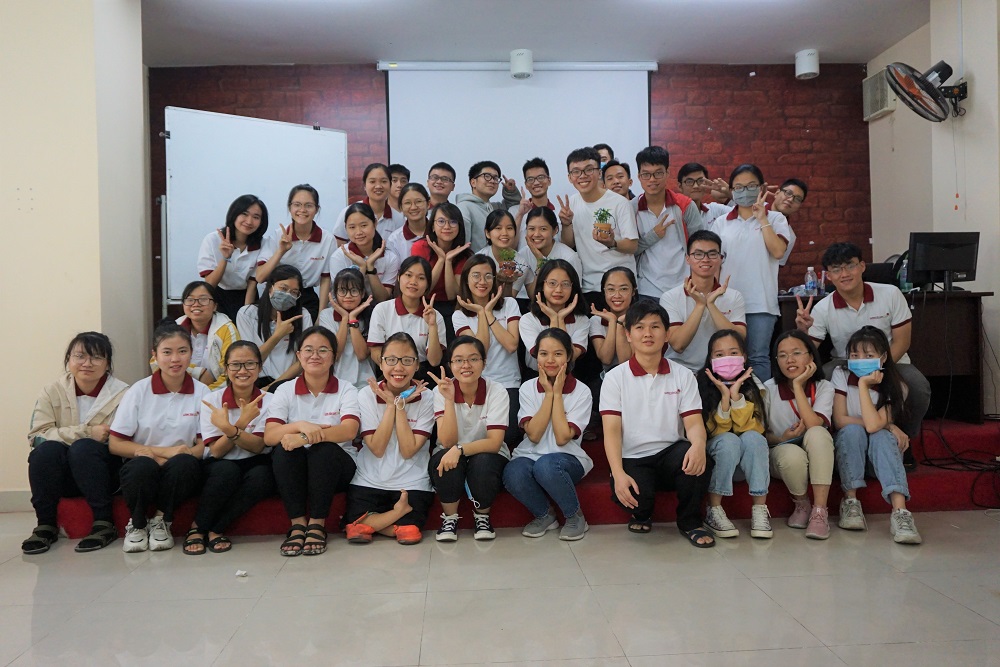
Contents and Photos: Communication Team – Student’s Club LVC Fund



